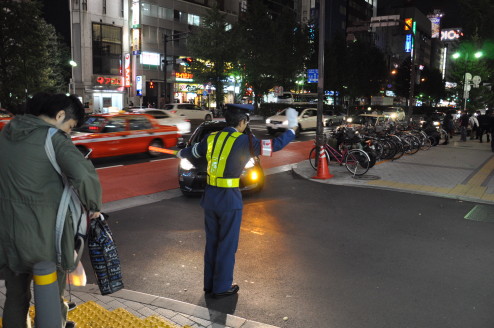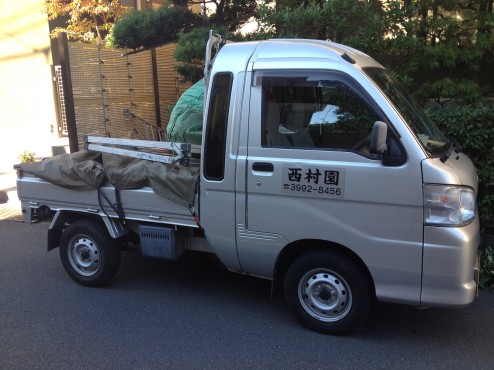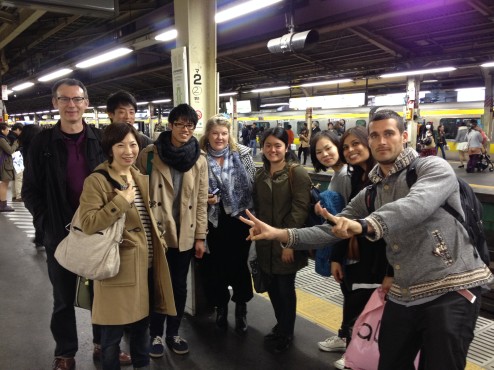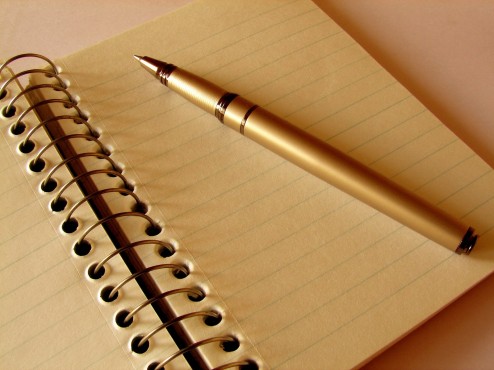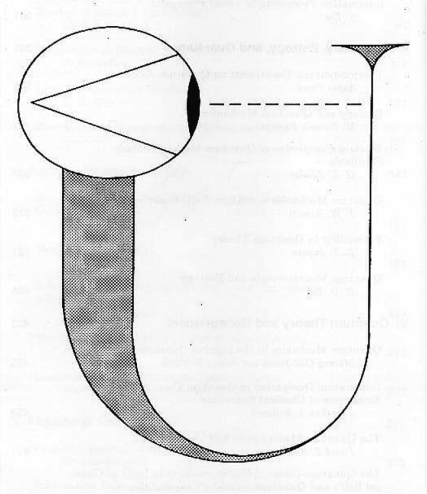“Your skin doesn’t separate you from the world; it’s a bridge through which the external world flows into you, and you flow into it.”
More Alan Watts? Yes, it’s always a good time for more Alan Watts. Over and over and over, repeat.
“The whole world is moving through you, all the cosmic rays, all the food you’re eating, the stream of steaks and milk and eggs and everything is just flowing right through you.”
Have you ever thought about your self in this way? In goes oxygen, water, sunshine and food. Out goes carbon dioxide, piss and shit. We all know that our bodies are is constantly in-taking and expelling the world, but I’m not sure many of us feel ourselves as fully connected and inseparable from our environment.
What ways, then, can we define ourselves as separate from and connected to our environment?
Watts likens us to a whirlpool in water:
“you could say because you have a skin you have a definite shape you have a definite form. All right? Here is a flow of water, and suddenly it does a whirlpool, and it goes on. The whirlpool is a definite form, but no water stays put in it. The whirlpool is something the stream is doing, and exactly the same way, the whole universe is doing each one of us, and I see each one of you today and I recognize you tomorrow, just as I would recognize a whirlpool in a stream. I’d say ‘Oh yes, I’ve seen that whirlpool before, it’s just near so-and-so’s house on the edge of the river, and it’s always there.’ So in the same way when I meet you tomorrow, I recognize you, you’re the same whirlpool you were yesterday. But you’re moving…. When you’re wiggling the same way, the world is wiggling, the stream is wiggling you.”
Why do we tend to think of ourselves as separate from our environment? Why do we wage wars on nature, when we are in fact a part of nature?
“the problem is,” explains Watts, “we haven’t been taught to feel that way. The myths underlying our culture and underlying our common sense have not taught us to feel identical with the universe, but only parts of it, only in it, only confronting it–aliens. And we are, I think, quite urgently in need of coming to feel that we ARE the eternal universe, each one of us… Otherwise we’re going to go out of our heads. We’re going to commit suicide, collectively, courtesy of H-bombs. And, all right, supposing we do, well that will be that, then there will be life making experiments on other galaxies. Maybe they’ll find a better game.”
Do we need a new religion? Watts says: No.
‘This, as history has shown repeatedly, is not enough. Religions are divisive and quarrelsome. They are a form of one-upmanship because they depend upon separating the “saved” from the “damned,” the true believers from the heretics, the in-group from the out-group… As systems of doctrine, symbolism, and behavior, religions harden into institutions that must command loyalty, be defended and kept “pure,” and – because all belief is fervent hope, and thus a cover-up for doubt and uncertainty – religions must make converts.’
What, then do we need?
“We do not need a new religion or a new bible. We need a new experience – a new feeling of what it is to be “I”.’
We need to deepen our understanding of our selves and our world, and expand our philosophy for life in ways that align with this understanding.
What does it feel like when one defines themselves as the universe?
1. it changes the feeling I have toward you
“I see every one of you as the primordial energy of the universe coming on at me in this particular way. I know I’m that, too.”
In this way I an inclined to enjoy your successes (as they are my successes too) and to feel your pain (as it is my pain too). This radical empathy brings me to point (2).
2. it increases care for the future of our species and our planet
‘When you know for sure that your separate ego is a fiction, you actually feel yourself as the whole process and pattern of life. Experience and experiencer become one experiencing, known and knowing one knowing.’
If I am the whole universe, I care about the creative possibilities and the destructive suffering of all the beings within that universe. What is best for all is what is best for myself, and I work to align my own actions to bring about the best for others.
3. it takes away loneliness—as I know that my roots connect me to all.
“We do not ‘come into’ this world; we come out of it, as leaves from a tree. As the ocean ‘waves,’ the universe ‘peoples.'”
4. it gives my life meaning and purpose.
Watts asks, “Why go on? And you only go on if the game is worth the gamble… a satisfactory theory of the universe has to be one that’s worth betting on.”
And (again) my favourite quote from Watts:
“You have seen that the universe is at root a magical illusion and a fabulous game, and that there is no separate ‘you’ to get something out of it, as if life were a bank to be robbed. The only real ‘you’ is the one that comes and goes, manifests and withdraws itself eternally in and as every conscious being. For “you” is the universe looking at itself from billions of points of view, points that come and go so that the vision is forever new.”
I find my meaning not in what I can take from others, for my individual body, but in what I can give to others and what I can give to the world as a whole. And I do this with the most selfish intention: giving, in my experience, is far more rewarding than taking.
We are each the narrator of our own life stories.
We can narrate ourselves as separate individuals, out to take from the world what we feel it owes us—we can set out to compete, beat and survive.
Or we can narrate ourselves as interconnecting processes, here to give to the world, to inspire the best in others and live on through the surrounding processes that we continue within when our own body dies.
The latter focalisation leads to greater happiness and satisfaction in the life that I’m living. For me, Alan Watt’s theory of the universe is one worth betting on.
Quotes are from various Alan Watts books and talks, largely The Book : On the Taboo against Knowing Who You Are (London: Jonathan Cape, 1969). pp. 15-8; and The Nature of Consciousness Watts (1960).
Picture is John Wheeler’s “Participatory Universe”, included in Paul Davies’ The Mind of God (1992: 225). Here we are represented as a self-reflexive eye that emerged within life’s story.
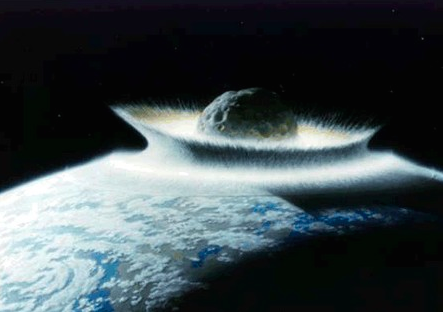
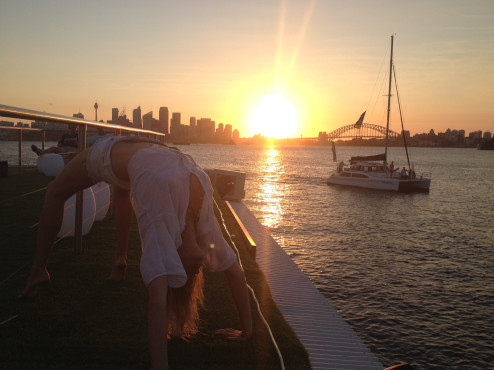


 Feb 01, 2013 | “You gonna swim back to the waves, or keep swimming forward?” an instructor asked. Yesterday I found myself sitting directly behind a group of fit, tanned bods in “North Bondi” speedos. An accident, I promise. Lying on the beach these words (and images) struck a chord with a recent conversation, and a friend’s philosophy I’ve adopted and written about before – “always do rather than not do.” Yet this time the philosophy had a little twist: if one faces a number of options, which should one
Feb 01, 2013 | “You gonna swim back to the waves, or keep swimming forward?” an instructor asked. Yesterday I found myself sitting directly behind a group of fit, tanned bods in “North Bondi” speedos. An accident, I promise. Lying on the beach these words (and images) struck a chord with a recent conversation, and a friend’s philosophy I’ve adopted and written about before – “always do rather than not do.” Yet this time the philosophy had a little twist: if one faces a number of options, which should one 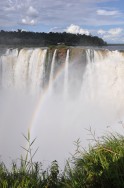 Feb 08, 2013 | ‘Extensive studies of colour perception over several decades have made it clear that there are no colours in the external world, independent of the process of perception.’[1] Since I was a child I’ve wondered if what I see to be green is the same as what you see to be green. I wondered if I were to switch places with someone would I be horrified by everyone walking around with green faces or green hair. That’s not the kind of un-real we are talking about here. I think we’re safe to assume
Feb 08, 2013 | ‘Extensive studies of colour perception over several decades have made it clear that there are no colours in the external world, independent of the process of perception.’[1] Since I was a child I’ve wondered if what I see to be green is the same as what you see to be green. I wondered if I were to switch places with someone would I be horrified by everyone walking around with green faces or green hair. That’s not the kind of un-real we are talking about here. I think we’re safe to assume 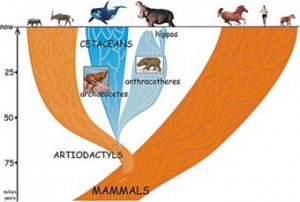 Feb 22, 2013 | Richard Dawkins “The Ancestor’s Tale” audio book traces our ancestry back through the ages, recapping the tales of various animals as they join our “pilgrimage” all the way back to the dawn of evolution. At one particular rendezvous we meet the Artiodactyls – the even-toed mammals i.e. mammals with hoofs like pigs and hippos. Here Dawkins tells the tale of whales. What? Whales don’t have hoofs!!! No, but their closest ancestor does. Hippos are in fact closer to whales then they are pigs! Apparently
Feb 22, 2013 | Richard Dawkins “The Ancestor’s Tale” audio book traces our ancestry back through the ages, recapping the tales of various animals as they join our “pilgrimage” all the way back to the dawn of evolution. At one particular rendezvous we meet the Artiodactyls – the even-toed mammals i.e. mammals with hoofs like pigs and hippos. Here Dawkins tells the tale of whales. What? Whales don’t have hoofs!!! No, but their closest ancestor does. Hippos are in fact closer to whales then they are pigs! Apparently  Mar 28, 2013 | The feeling of flow is that feeling you get when you are at your ultimate and you feel your body almost disappear in a spontaneous yet automatic type fashion. For example, a sportsperson running or high jumping or swimming at their peak; an artist’s moment of inspiration and clarity; a writer when it almost feels like a stream of consciousness directly channeling the right words in the right order from some otherworldly place. One can feel flow when they play music, or when they make love, or
Mar 28, 2013 | The feeling of flow is that feeling you get when you are at your ultimate and you feel your body almost disappear in a spontaneous yet automatic type fashion. For example, a sportsperson running or high jumping or swimming at their peak; an artist’s moment of inspiration and clarity; a writer when it almost feels like a stream of consciousness directly channeling the right words in the right order from some otherworldly place. One can feel flow when they play music, or when they make love, or 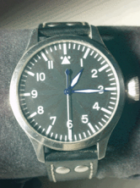 Feb 25, 2013 | “There is only one meaning of life: the act of living it,” wrote German psychologist and social theorist Erich Fromm in 1941.[1] Some find meaning in their work, in travel, in writing, in loving, in obeying a religion, in creating babies—all of which are different acts of living. The meaning of life (a noun) is in the process of living (a verb). This points to a fundamental shift from that of a static goal, to a dynamic experience. In this view one does not put off the rewards of life,
Feb 25, 2013 | “There is only one meaning of life: the act of living it,” wrote German psychologist and social theorist Erich Fromm in 1941.[1] Some find meaning in their work, in travel, in writing, in loving, in obeying a religion, in creating babies—all of which are different acts of living. The meaning of life (a noun) is in the process of living (a verb). This points to a fundamental shift from that of a static goal, to a dynamic experience. In this view one does not put off the rewards of life, 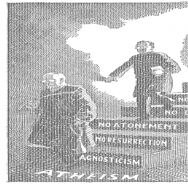 Mar 19, 2013 | The word “Fundamentalism” might make you think of people with unwavering beliefs who refuse to consider alternative views. You could be thinking of people committed to a political ideology on the far left or far right, or maybe a form of religious fundamentalism. The word is often used interchangeably with “Extremism”, which may make you think of suicide bombers, hate crimes against gays, sexual discrimination against women—anyone who use a “Holy Scripture” to justify violence. Yet you might
Mar 19, 2013 | The word “Fundamentalism” might make you think of people with unwavering beliefs who refuse to consider alternative views. You could be thinking of people committed to a political ideology on the far left or far right, or maybe a form of religious fundamentalism. The word is often used interchangeably with “Extremism”, which may make you think of suicide bombers, hate crimes against gays, sexual discrimination against women—anyone who use a “Holy Scripture” to justify violence. Yet you might  Mar 23, 2013 | How does one make sense of large scale suffering, like that of global disasters, Auschwitz, or even cyclical poverty? Is that God’s not-so-fine handiwork? This TED Talk by Rev. Tom Honey, introduces a different idea about God that is well-known in intellectual theological circles, but not so well known outside of this. Rev. Honey challenges the traditional conception of God as a “male boss”… a “celestial controller, a rule maker, a policeman in the sky who orders everything, and causes everything
Mar 23, 2013 | How does one make sense of large scale suffering, like that of global disasters, Auschwitz, or even cyclical poverty? Is that God’s not-so-fine handiwork? This TED Talk by Rev. Tom Honey, introduces a different idea about God that is well-known in intellectual theological circles, but not so well known outside of this. Rev. Honey challenges the traditional conception of God as a “male boss”… a “celestial controller, a rule maker, a policeman in the sky who orders everything, and causes everything 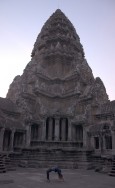 Apr 02, 2013 | “If you’re aiming for a goal that isn’t your destiny, you will always be swimming against the current… Find out what your destiny is and the river will carry you.”—Men Who Stare At Goats. Nicola’s comment on my 2010 blog post on Optimal Trajectory reminded me of this philosophy. As I blogged last week, there are times in life where you are “in the flow”, and times when you are swimming against the tide. When your destiny is carrying you, it can feel as if there are green lights all
Apr 02, 2013 | “If you’re aiming for a goal that isn’t your destiny, you will always be swimming against the current… Find out what your destiny is and the river will carry you.”—Men Who Stare At Goats. Nicola’s comment on my 2010 blog post on Optimal Trajectory reminded me of this philosophy. As I blogged last week, there are times in life where you are “in the flow”, and times when you are swimming against the tide. When your destiny is carrying you, it can feel as if there are green lights all 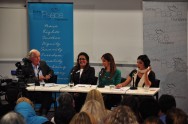 Apr 24, 2013 | I’ve been a bit slack with my blogging the last few years, which is a shame given the great work that I’m involved in with the Sydney Peace Foundation, and the research I’m doing at the Centre for Peace and Conflict Studies. Unfortunately there’s only so much time in the day. Unless you’ve worked in hospitality you don’t know the work that goes into waitressing, cooking and the respect deserved for it. Everyone should work in hospitality, at least once life. Same goes for organising events.
Apr 24, 2013 | I’ve been a bit slack with my blogging the last few years, which is a shame given the great work that I’m involved in with the Sydney Peace Foundation, and the research I’m doing at the Centre for Peace and Conflict Studies. Unfortunately there’s only so much time in the day. Unless you’ve worked in hospitality you don’t know the work that goes into waitressing, cooking and the respect deserved for it. Everyone should work in hospitality, at least once life. Same goes for organising events. 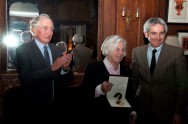 May 06, 2013 | On 2 May 2013, in Paris, my colleagues and I represented the Sydney Peace Foundation at the Australian Ambassador’s Residence in Paris, where we awarded a posthumous Gold Medal for Human Rights to Stéphane Hessel for his life-long contribution to building a more peaceful and just society. Stéphane Hessel was a German born Jew whose family fled to France who became a fighter in the French Resistance where he was captured, tortured and escaped execution by the Nazis. On returning to Paris
May 06, 2013 | On 2 May 2013, in Paris, my colleagues and I represented the Sydney Peace Foundation at the Australian Ambassador’s Residence in Paris, where we awarded a posthumous Gold Medal for Human Rights to Stéphane Hessel for his life-long contribution to building a more peaceful and just society. Stéphane Hessel was a German born Jew whose family fled to France who became a fighter in the French Resistance where he was captured, tortured and escaped execution by the Nazis. On returning to Paris 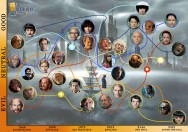 May 19, 2013 | “My life amounts to no more than one drop in a limitless ocean. Yet what is any ocean, but a multitude of drops?” ― David Mitchell, Cloud Atlas On the journey from Sydney to Paris I watched Cloud Atlas. Actually I watched it twice. And I still don’t get it. The film is six stories from six times that weave in and out of one another, with actors and actresses playing characters within the different times. It is terribly confusing, but a clear picture emerges. A distinct pattern that
May 19, 2013 | “My life amounts to no more than one drop in a limitless ocean. Yet what is any ocean, but a multitude of drops?” ― David Mitchell, Cloud Atlas On the journey from Sydney to Paris I watched Cloud Atlas. Actually I watched it twice. And I still don’t get it. The film is six stories from six times that weave in and out of one another, with actors and actresses playing characters within the different times. It is terribly confusing, but a clear picture emerges. A distinct pattern that  May 29, 2013 | In his TED Talk, the Canon Pastor of Exeter Cathedral in the UK, Tom Honey, explained some of the dilemmas involved in challenging images and ideas attached to the traditional notion of God within his congregation. He explains the way that ‘most people, both within and outside the organized church, still have a picture of a celestial controller, a rule maker, a policeman in the sky who orders everything, and causes everything to happen,’ and how in time he had become ‘more and more uncomfortable
May 29, 2013 | In his TED Talk, the Canon Pastor of Exeter Cathedral in the UK, Tom Honey, explained some of the dilemmas involved in challenging images and ideas attached to the traditional notion of God within his congregation. He explains the way that ‘most people, both within and outside the organized church, still have a picture of a celestial controller, a rule maker, a policeman in the sky who orders everything, and causes everything to happen,’ and how in time he had become ‘more and more uncomfortable 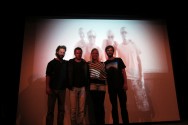 Jun 07, 2013 | On 7th day of the 7th month, 2007, I met a person who would inspire a change in my life. He lit a spark of creativity inside me, and pointed to the possibilities that exist if you just fucking go. Soon after our chance encounter (and kiss), I stumbled across his blog www.nyc2rio.com: On September 13th, 2007 we’re driving out of New York City on an adventure through Central and South America, en-route to Rio De Janeiro. Aside from making it there in one piece, our journey is about the experience
Jun 07, 2013 | On 7th day of the 7th month, 2007, I met a person who would inspire a change in my life. He lit a spark of creativity inside me, and pointed to the possibilities that exist if you just fucking go. Soon after our chance encounter (and kiss), I stumbled across his blog www.nyc2rio.com: On September 13th, 2007 we’re driving out of New York City on an adventure through Central and South America, en-route to Rio De Janeiro. Aside from making it there in one piece, our journey is about the experience 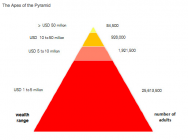 Jun 14, 2013 | If your total wealth is over 1 million dollars you are in the top 0.5% of the global wealth pyramid. If you have between 100k and 1m, you are in the top 7.5%. If you have somewhere between 10k and 100k, you are still in the top third of the global pyramid. If you own over 50 million dollars worth of assets, you are one of only 81,000 people on this planet. If over 10 million you are still one of the richest 1 million people out of 7 billion people. Not to say I know many people with
Jun 14, 2013 | If your total wealth is over 1 million dollars you are in the top 0.5% of the global wealth pyramid. If you have between 100k and 1m, you are in the top 7.5%. If you have somewhere between 10k and 100k, you are still in the top third of the global pyramid. If you own over 50 million dollars worth of assets, you are one of only 81,000 people on this planet. If over 10 million you are still one of the richest 1 million people out of 7 billion people. Not to say I know many people with 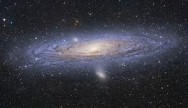 Jun 22, 2013 | It is a common misinterpretation of the Theory of Evolution to think that there is a clear line between species—this is what Richard Dawkins calls “The Tyranny of the Discontinuous Mind.” If we are connected in time to all species, then are we not also connected to the big bang? In fact, within such a continuity, can we not define our selves as the Big Bang, expressing itself in different forms? Let’s explore Dawkins’ tyranny along with my all time favourite, Alan Watts. In The Ancestor’s
Jun 22, 2013 | It is a common misinterpretation of the Theory of Evolution to think that there is a clear line between species—this is what Richard Dawkins calls “The Tyranny of the Discontinuous Mind.” If we are connected in time to all species, then are we not also connected to the big bang? In fact, within such a continuity, can we not define our selves as the Big Bang, expressing itself in different forms? Let’s explore Dawkins’ tyranny along with my all time favourite, Alan Watts. In The Ancestor’s  Jun 30, 2013 | On Tuesday 18 June, I shook hands and looked into the eyes of the man who seems to be the happiest man in the world—His Holiness Tenzin Gyatso, the 14th Dalai Lama of Tibet. More than meeting him, at the end of our event I received a blessing from him. It was very real but also surreal. As one might imagine, it takes a lot of work and preparation, and a bit of stress. Ok, a lot of stress. Every detail must be taken care of. Every person must have a seat, but no seat should be empty. This
Jun 30, 2013 | On Tuesday 18 June, I shook hands and looked into the eyes of the man who seems to be the happiest man in the world—His Holiness Tenzin Gyatso, the 14th Dalai Lama of Tibet. More than meeting him, at the end of our event I received a blessing from him. It was very real but also surreal. As one might imagine, it takes a lot of work and preparation, and a bit of stress. Ok, a lot of stress. Every detail must be taken care of. Every person must have a seat, but no seat should be empty. This 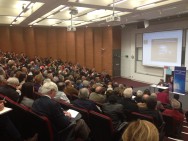 Aug 30, 2013 | On Thursday evening the widely acclaimed author Susan George presented the Ted Wheelwright Memorial Lecture at the University of Sydney, on the difference between legitimate and illegitimate authority. These are some of my scribbles. Susan George started by reminding us that democracy is and will always be a work in progress—something you do not something you get. The Problems with Neo-liberalism She put into perspective the new neo-liberal model of politics, which continue to get
Aug 30, 2013 | On Thursday evening the widely acclaimed author Susan George presented the Ted Wheelwright Memorial Lecture at the University of Sydney, on the difference between legitimate and illegitimate authority. These are some of my scribbles. Susan George started by reminding us that democracy is and will always be a work in progress—something you do not something you get. The Problems with Neo-liberalism She put into perspective the new neo-liberal model of politics, which continue to get 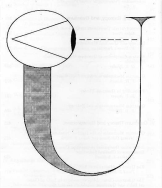 Oct 11, 2013 | “Your skin doesn’t separate you from the world; it’s a bridge through which the external world flows into you, and you flow into it.” More Alan Watts? Yes, it’s always a good time for more Alan Watts. Over and over and over, repeat. “The whole world is moving through you, all the cosmic rays, all the food you’re eating, the stream of steaks and milk and eggs and everything is just flowing right through you.” Have you ever thought about your self in this way? In goes oxygen, water, sunshine
Oct 11, 2013 | “Your skin doesn’t separate you from the world; it’s a bridge through which the external world flows into you, and you flow into it.” More Alan Watts? Yes, it’s always a good time for more Alan Watts. Over and over and over, repeat. “The whole world is moving through you, all the cosmic rays, all the food you’re eating, the stream of steaks and milk and eggs and everything is just flowing right through you.” Have you ever thought about your self in this way? In goes oxygen, water, sunshine  Oct 28, 2013 | I tend not to write when everything is going well. There’s little need. Such peace, in a sense, is boring. At least when it comes to content for a blog. I also tend not to write when I’m “too busy”. When all my energy is being directed elsewhere: into work, relationships, exercise or otherwise. For a lover of writing this tension can be sickening to their being. But, there are times in life when time must be diverted in this way. The shorter the period of such a diversion the better. A blog
Oct 28, 2013 | I tend not to write when everything is going well. There’s little need. Such peace, in a sense, is boring. At least when it comes to content for a blog. I also tend not to write when I’m “too busy”. When all my energy is being directed elsewhere: into work, relationships, exercise or otherwise. For a lover of writing this tension can be sickening to their being. But, there are times in life when time must be diverted in this way. The shorter the period of such a diversion the better. A blog  Oct 31, 2013 | Let me introduce Dr Cynthia Maung, recipient of the 2013 Sydney Peace Prize, who is consuming my life right now as (as Executive Officer of the Sydney Peace Foundation) I am organising Dr Cynthia’s visit to Sydney and two HUGE events that follow. Since the announcement in the Sydney Morning Herald’s Good Weekend (“Fragile Sanctuary”), on 17 August, we have been on a mission to sell tickets, stimulate media interest and organise the City of Sydney Peace Prize Lecture in the Sydney Town
Oct 31, 2013 | Let me introduce Dr Cynthia Maung, recipient of the 2013 Sydney Peace Prize, who is consuming my life right now as (as Executive Officer of the Sydney Peace Foundation) I am organising Dr Cynthia’s visit to Sydney and two HUGE events that follow. Since the announcement in the Sydney Morning Herald’s Good Weekend (“Fragile Sanctuary”), on 17 August, we have been on a mission to sell tickets, stimulate media interest and organise the City of Sydney Peace Prize Lecture in the Sydney Town  Nov 26, 2013 | An experiment with experiential learning Brought me back Seven years had passed Since I called Tokyo my home Like an ex-lover Familiar but different A flood of memories In the streets, big and small The love and the hate I once felt for the city, for the culture and for a boy Fused, buried A different self, many life times ago Filled with paradoxes Racism to extremes Celebritised or despised Aliens swimming in a foreign sea of manicured faces Designer top to toe Toy cars,
Nov 26, 2013 | An experiment with experiential learning Brought me back Seven years had passed Since I called Tokyo my home Like an ex-lover Familiar but different A flood of memories In the streets, big and small The love and the hate I once felt for the city, for the culture and for a boy Fused, buried A different self, many life times ago Filled with paradoxes Racism to extremes Celebritised or despised Aliens swimming in a foreign sea of manicured faces Designer top to toe Toy cars,  Dec 24, 2013 | Call it procrastination or maybe even research, I’ve been spending a bit of time over the past week catching up on YouTube, RSA, TED Talks and general online initiatives connecting with my interests in peace, justice, environmental sustainability, technology and holistic worldviews. Today I stumbled across the Charter for Compassion: I remember author and scholar Karen Armstrong’s TED Talk, which won the 2008 TED Prize. Armstrong talks about how the Abrahamic religions — Islam,
Dec 24, 2013 | Call it procrastination or maybe even research, I’ve been spending a bit of time over the past week catching up on YouTube, RSA, TED Talks and general online initiatives connecting with my interests in peace, justice, environmental sustainability, technology and holistic worldviews. Today I stumbled across the Charter for Compassion: I remember author and scholar Karen Armstrong’s TED Talk, which won the 2008 TED Prize. Armstrong talks about how the Abrahamic religions — Islam, 